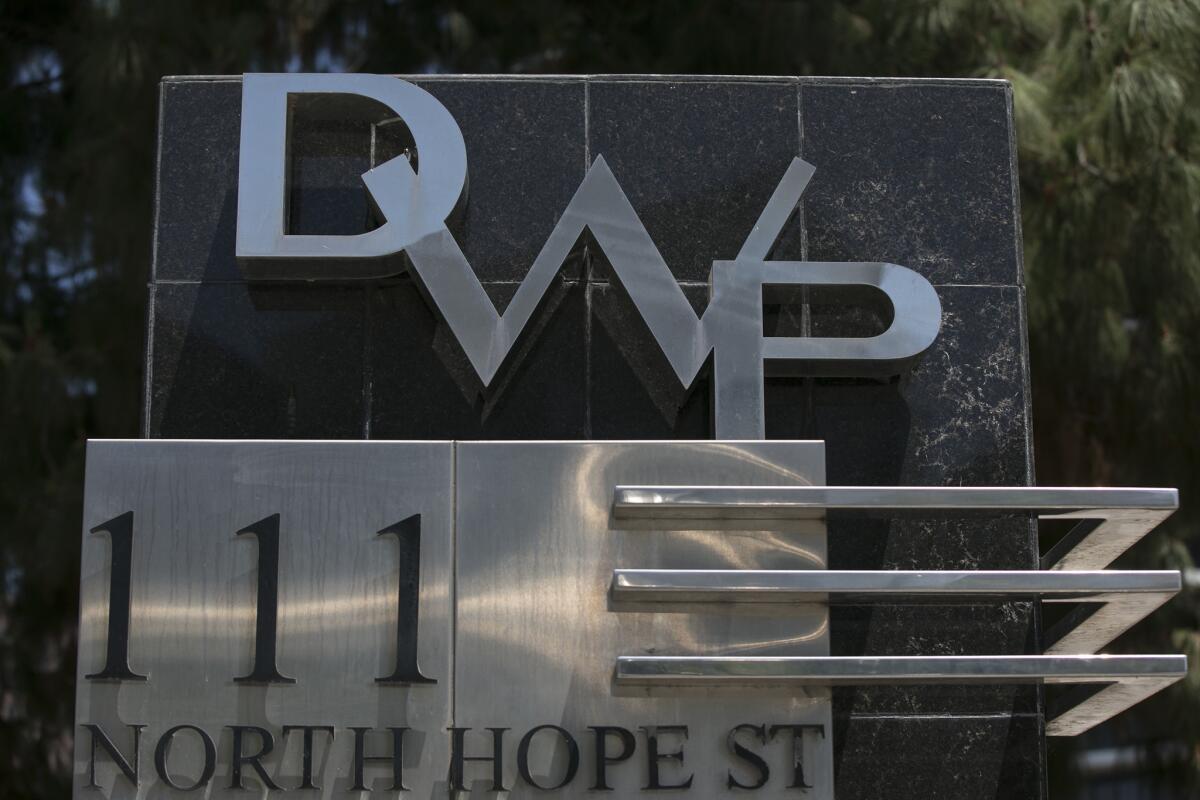L.A. can audit controversial DWP nonprofits, appeals court rules

- Share via
For more than two years, union leaders at the Los Angeles Department of Water and Power have fought a bitter legal battle to keep secret how two utility-affiliated nonprofits have spent more than $40 million in public money.
On Thursday, a three-judge appeals panel dealt that effort a major blow, ruling that city leaders — and ultimately ratepayers — have the right to inspect the controversial nonprofits’ financial records.
As a compromise while the legal case was running its course, the union allowed City Controller Ron Galperin limited access to five years of spending records.
Galperin’s audit showed the nonprofits had paid millions to vendors without competitive bids, overpaid top managers and let them charge more than $660,000 to publicly financed credit cards for things such as steak dinners and trips to Las Vegas, Hawaii and New Orleans.
City auditors also found the nonprofits — the Joint Training Institute and the Joint Safety Institute — could not show that they had improved safety or training at the city-owned utility since their inception in the early 2000s.
But whether the public could see how the nonprofits had spent tens of millions of dollars in previous years, or if the city could continue conducting audits in the future, remained up to the courts.
Those questions were put to rest when a panel from the 2nd District Court of Appeal in Los Angeles ruled that the controller has the right to perform annual, unfettered audits of the nonprofits’ books — the same right the controller has to audit any organization that receives city money.
“This case had to be won,” City Atty. Mike Feuer said in an interview after the ruling. “For me, it was the poster child test for whether we believe transparency is fundamentally important.”
Mayor Eric Garcetti, whose promise to bring reform and accountability to the DWP was a central part of his campaign for office in 2013, said the appeals court ruling removed “any shadow of a doubt” about the public’s right to know how its money is spent.
Garcetti said the limited audits union leaders agreed to this year proved there was “misspending” by the nonprofits. He said he would wait to see whether the nonprofits implement a broad series of reforms recommended by those audits before he decides whether to order a deeper dive into the previous years’ spending records.
Among those recommendations were requiring the nonprofits to spend roughly $11 million they had in the bank before receiving more city money, merging the two groups into a single entity with a smaller staff and reining in top managers’ use of the publicly financed credit cards.
Galperin made those recommendations in May, but the DWP has reported little progress so far. Both Garcetti and Galperin said an upcoming progress report from the utility’s managers would help them decide what to do next.
Annual funding for the nonprofits is included in the city’s labor contract with the union, so their existence, in some form, is guaranteed until the contract expires in 2017.
A spokesman for union leader Brian D’Arcy did not respond to requests for comment, and it’s unclear whether he will ask the state Supreme Court to review the ruling.
The City Council created the nonprofits in the early 2000s to help soothe labor relations at the utility following a grueling round of job cuts, and the institutes operated mostly under the radar for more than a decade. That changed in September 2013 when The Times reported that city leaders had only scant information on how the money that was transferred to the groups — roughly $4 million a year — had been spent.
After Garcetti won election in 2013 against a rival funded in large part by the DWP union, he demanded an immediate, public accounting of the nonprofits’ spending.
D’Arcy declined to cooperate, saying the ratepayer money was no longer open to public scrutiny once it landed in the nonprofits’ bank accounts. As part of the ensuing battle, D’Arcy filed a lawsuit to quash a city subpoena for the records.
In March 2014, a lower court ruled in the city’s favor. “The overarching principle here is does the city get to find out what happened to city money intended for a public purpose? It does,” said Los Angeles County Superior Court Judge James Chalfant.
Among the findings of the audit released this year was that five top administrators at the nonprofits — including senior DWP managers and the president of D’Arcy’s union — were being paid about $220,000 a year. By comparison, employees at the state Public Utilities Commission, who have roughly equivalent jobs, made about $148,000, the auditors found.
The DWP nonprofit administrators also got a $500 monthly car allowance and essentially unlimited use of publicly financed credit cards. The union president, Jon Pokorski, charged more than $30,000 in gas and carwashes to his nonprofit card between 2010 and 2014, the auditors found.
The nonprofit administrators were “used to operating out of public view, and that’s how they like it,” Galperin said at the time. “Transparency is not their favorite word.”
ALSO:
USGS slams study’s claim of 99.9% chance of large L.A. earthquake
Water bills will creep up next year in L.A. because we’ve conserved so much
Controversial DWP nonprofits to keep $11-million ‘rainy day’ fund
More to Read
Sign up for Essential California
The most important California stories and recommendations in your inbox every morning.
You may occasionally receive promotional content from the Los Angeles Times.










